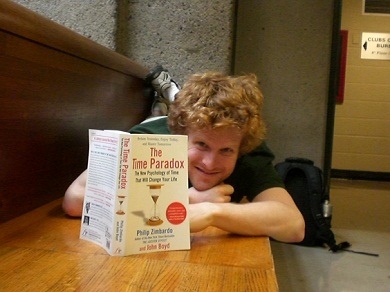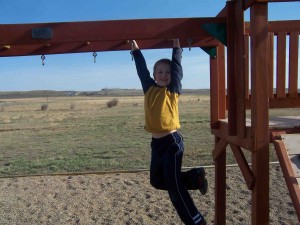I want to try something, and I am hoping some of you readers will participate.
In a nutshell, the idea is that we spend a little bit of time during a week (even if it is just 20 minutes) in a situation that nurtures insight.
It is possible for ideas to deeply change our world. How can we nurture the development of the ideas that might be game-changers in the coming months/years/decades?
My approach has two parts:
- Learn deeply and broadly about the world, including the major problems and proposed solutions. Useful insights generally require that they be based on accurate perceptions of reality.
- For some period of time, create the conditions under which deep insight into issues becomes more likely.
The central thrust of this ‘experiment’ has to do with what constitutes the conditions in part 2).
I imagine that there is a fair bit of individual variation on this front, but I am going to throw out some broad statements that I believe are reasonable based on what I know about human attention and education.
- Our culture is becoming increasingly dominated by subject changes. Our attention is being chopped up into smaller bits as we interact with increasingly fast and engaging social media. I claim that deeper insights are not likely to come about through spreading our attention more thinly or by multitasking more. Whatever advantages this culture change offers, we are hopefully already taking advantage of them.
- Teachers often complain about the quality of students in schools today. A central concern is the student’s ability to concentrate on one thing and to demonstrate the fact that they are capable of insight into the material at hand. Psychology has shown that our attention span is getting shorter. I believe these facts are all closely related. I believe the lack of insight in current students is due in part to the fact that they are not used to simply rolling an idea around in their heads for many minutes at a time. In short, I believe that the shortening of our attention spans is connected with reduced abilities to garner deep insight.
- Distraction seem to have a complicated relationship with insight. While distractions do represent a fragmentation of attention, they can also be the foundation for connective insights – where we put different ideas together in new ways. These connections can help us understand the ideas and the relationship(s) between them.
 I propose that each of us spends some amount of time this week (I suggest at least 20 minutes) in a situation that is well-suited to the development of our personal insight. For me this might be walking through Parc Mont-Royal, sitting at a desk with a blank piece of paper in front of me, or even meditating. I suggest that people do what they are comfortable with, but again I have some specific ideas that might help:
I propose that each of us spends some amount of time this week (I suggest at least 20 minutes) in a situation that is well-suited to the development of our personal insight. For me this might be walking through Parc Mont-Royal, sitting at a desk with a blank piece of paper in front of me, or even meditating. I suggest that people do what they are comfortable with, but again I have some specific ideas that might help:
- Get comfortable.
- If you have a burning desire to interact with something else like friends, the Internet, a book, social media, etc, write down what you want to do on a piece of paper, tell yourself that you will do it later, and continue with your efforts to gain insight. In light of this, it can be helpful to have somewhere to write nearby.
- Be content. Getting upset probably won’t help.
- Be your own person. Don’t bother thinking about what other people might think of what you are thinking.
- Embrace the fact that your thoughts may be mostly about your own mundane concerns. Let them go where they will. Your thoughts will eventually turn to the things you care about most.
- Follow your trains of thought wherever they may lead. Don’t be afraid of thinking anything. We might like some thoughts more than others, but any one of them might hold the key to a deepening of our understanding of ourselves and our world.
I would like to hear from all of you about what your insights were and in what circumstances you achieved them.

 For a presentation during my Master’s studies I brought along some objects to use as learning aids. I was anticipating the multiple learning styles that may be in the classroom. Just prior to my moment in the spotlight, I looked at some of the more tactile items and said, “These are for the kinesthetic learners, although I doubt they made it this far.”
For a presentation during my Master’s studies I brought along some objects to use as learning aids. I was anticipating the multiple learning styles that may be in the classroom. Just prior to my moment in the spotlight, I looked at some of the more tactile items and said, “These are for the kinesthetic learners, although I doubt they made it this far.” Kinesthetic learners gain knowledge through doing and feeling (e.g. some learn best on their feet). If they are to understand the concept of addition, they would rather add physical steps than images on paper. If they are to grasp mechanics, they would rather take a motor apart than study how it works in theory. If they are to memorize anatomy, they would rather touch, feel, poke and prod a dummy.
Kinesthetic learners gain knowledge through doing and feeling (e.g. some learn best on their feet). If they are to understand the concept of addition, they would rather add physical steps than images on paper. If they are to grasp mechanics, they would rather take a motor apart than study how it works in theory. If they are to memorize anatomy, they would rather touch, feel, poke and prod a dummy. This is a major oversight. After all, the major neurological unit of movement (the cerebellum) is biologically one of the oldest and most important parts of the brain. All of the deliberate actions we make involve the cerebellum.
This is a major oversight. After all, the major neurological unit of movement (the cerebellum) is biologically one of the oldest and most important parts of the brain. All of the deliberate actions we make involve the cerebellum.